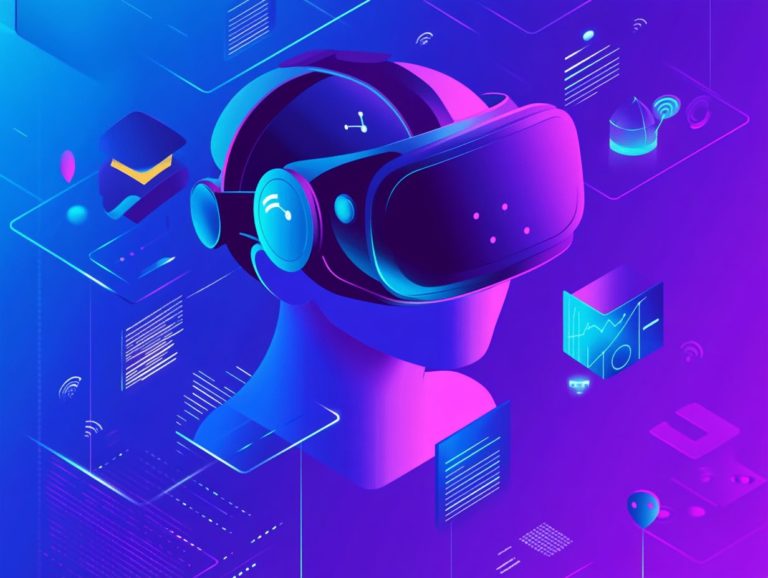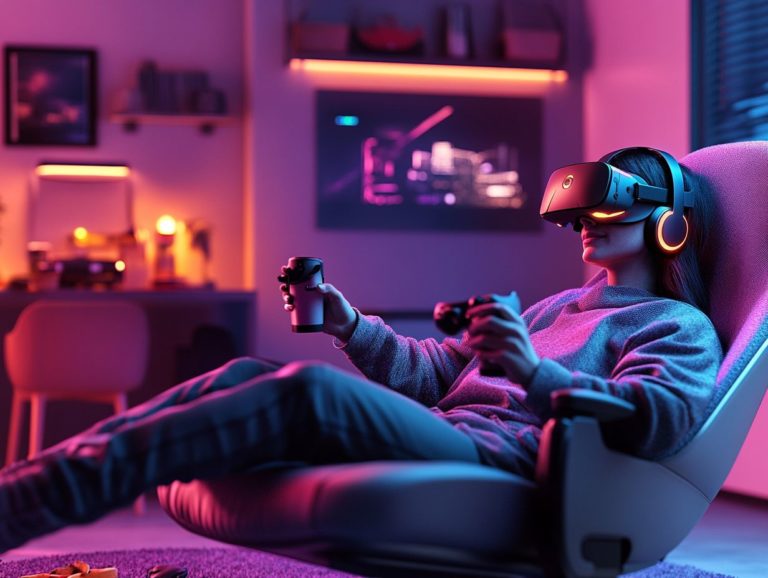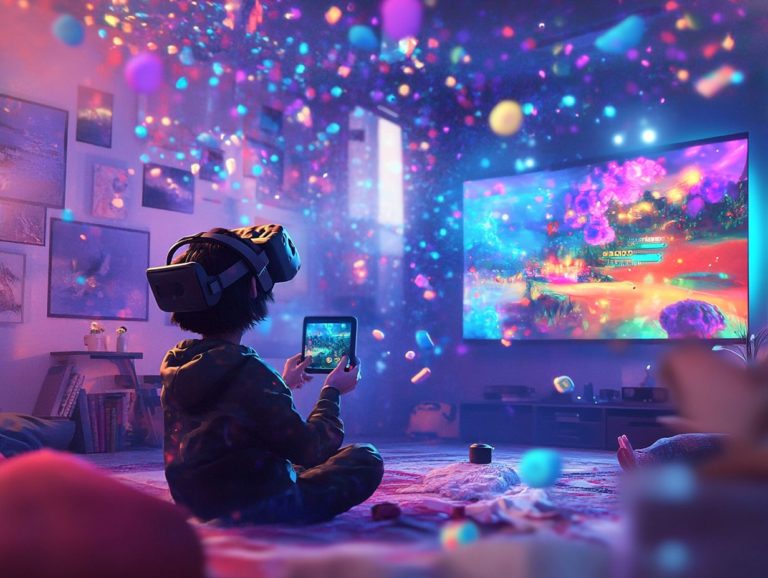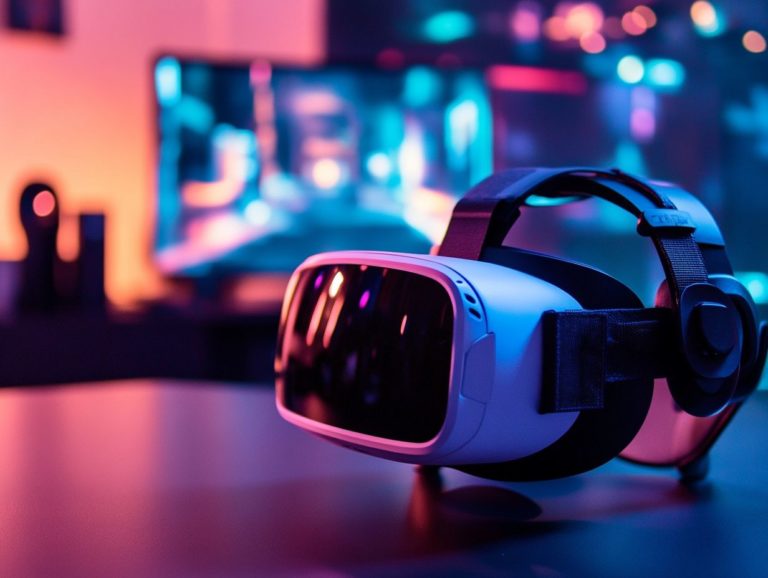how vr is shaping the future of entertainment
Virtual Reality (VR) is far more than a mere technological novelty; it is fundamentally transforming the entertainment landscape in remarkable ways.
From gaming to film, VR is revolutionising how you experience stories and enhancing your interaction with content. However, this exciting evolution comes with challenges, such as technical limitations and user comfort concerns.
As you delve into the rise of VR, consider its impact across various forms of entertainment and the future possibilities it presents. You’ll discover how this immersive medium is poised to redefine your experiences for years to come.
Contents
Key Takeaways:
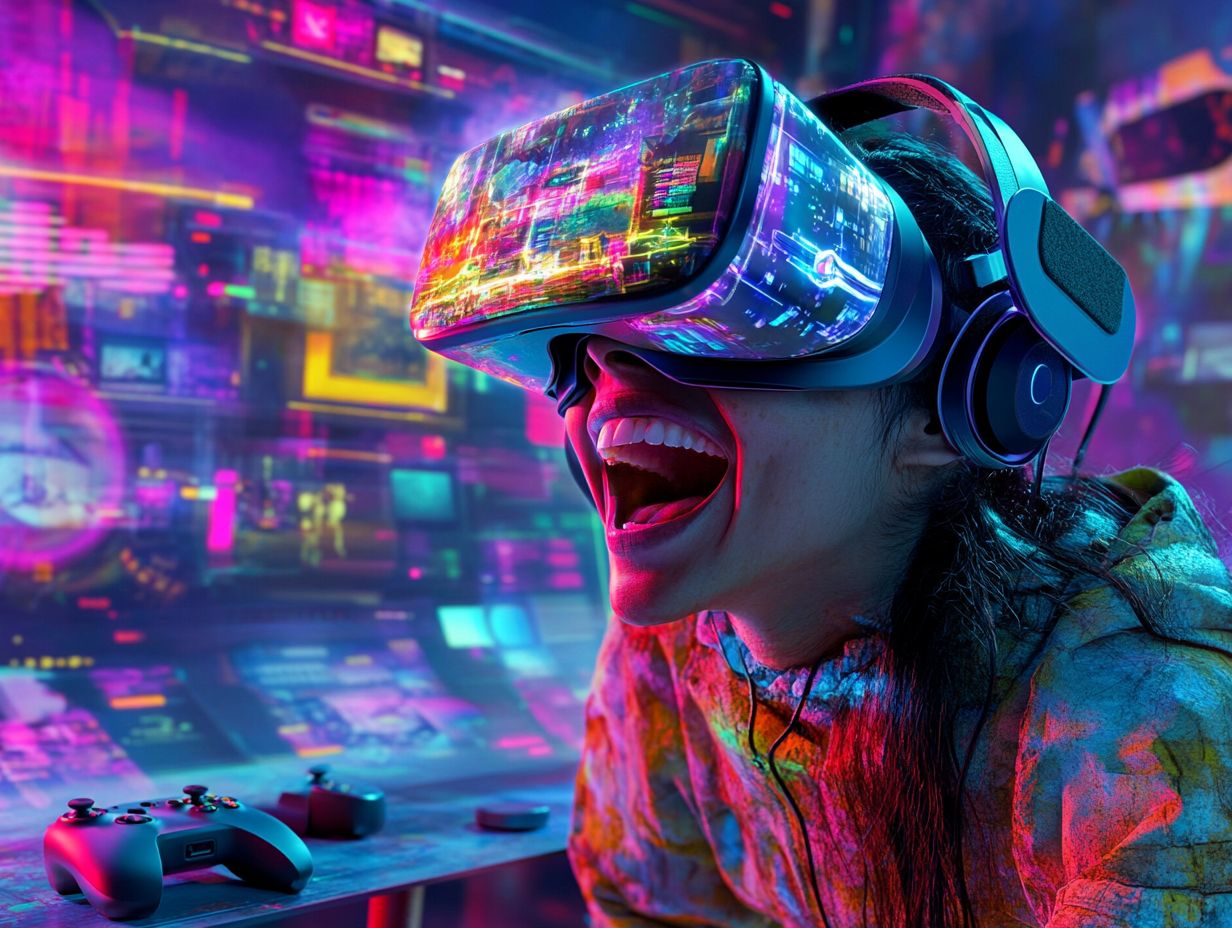
Virtual reality is making a major impact on the entertainment industry, revolutionising gaming and film while expanding into other forms of entertainment.
Despite its potential, VR still faces challenges and limitations, including technical and financial obstacles, as well as concerns around user comfort and safety.
The future of VR in entertainment holds endless possibilities, from immersive experiences to influencing social interactions and media consumption.
It is shaping the way we consume entertainment and interact with the world.
The Rise of Virtual Reality (VR)
The emergence of Virtual Reality (VR) has revolutionised various industries, especially the entertainment sector. It offers immersive experiences that fundamentally reshape storytelling and interaction.
With advancements like head-mounted displays devices worn on the head that display virtual environments and cloud-based VR, you can now engage with content in ways previously thought impossible. You can forge emotional connections through interactive education and gaming experiences.
As consumer adoption of VR expands, you need to explore its evolution and profound impact on user experience. Its promising future within the entertainment industry is worth delving into.
Defining VR and its Evolution
Virtual Reality (VR) is a captivating simulated environment crafted through advanced graphical rendering. It allows you to immerse yourself in digital spaces as if you were actually there.
Over the years, VR has undergone a remarkable transformation, fuelled by groundbreaking advancements in technology and hardware. The launch of VR headsets like the Oculus Rift has set a new standard for immersive experiences.
Emerging devices like the Apple Vision Pro push the boundaries of VR further with cutting-edge optics and motion tracking. These innovations heighten the realism of virtual worlds and expand VR applications across diverse sectors, including gaming, education, and training simulations.
This evolution fundamentally changes how you perceive and interact with both virtual and real environments.
Impact of VR on the Entertainment Industry
The impact of VR on the entertainment industry is nothing short of transformative. It revolutionises how you consume content, from interactive narratives in gaming to immersive storytelling in virtual concerts.
This shift toward VR technology enhances user engagement. It provides emotional connections and new experiences.
As the entertainment landscape evolves, you should explore how VR is reshaping traditional forms of entertainment. It crafts unique immersive experiences that captivate audiences around the globe.
Conclusion
In summary, VR is reshaping the entertainment industry, offering immersive experiences that enhance storytelling and engagement. As technology advances, the possibilities for the impact of VR on the gaming industry are endless.
How will you experience the future of entertainment? Dive into the world of VR now to see how it will shape your experiences!
Revolutionizing Gaming and Film
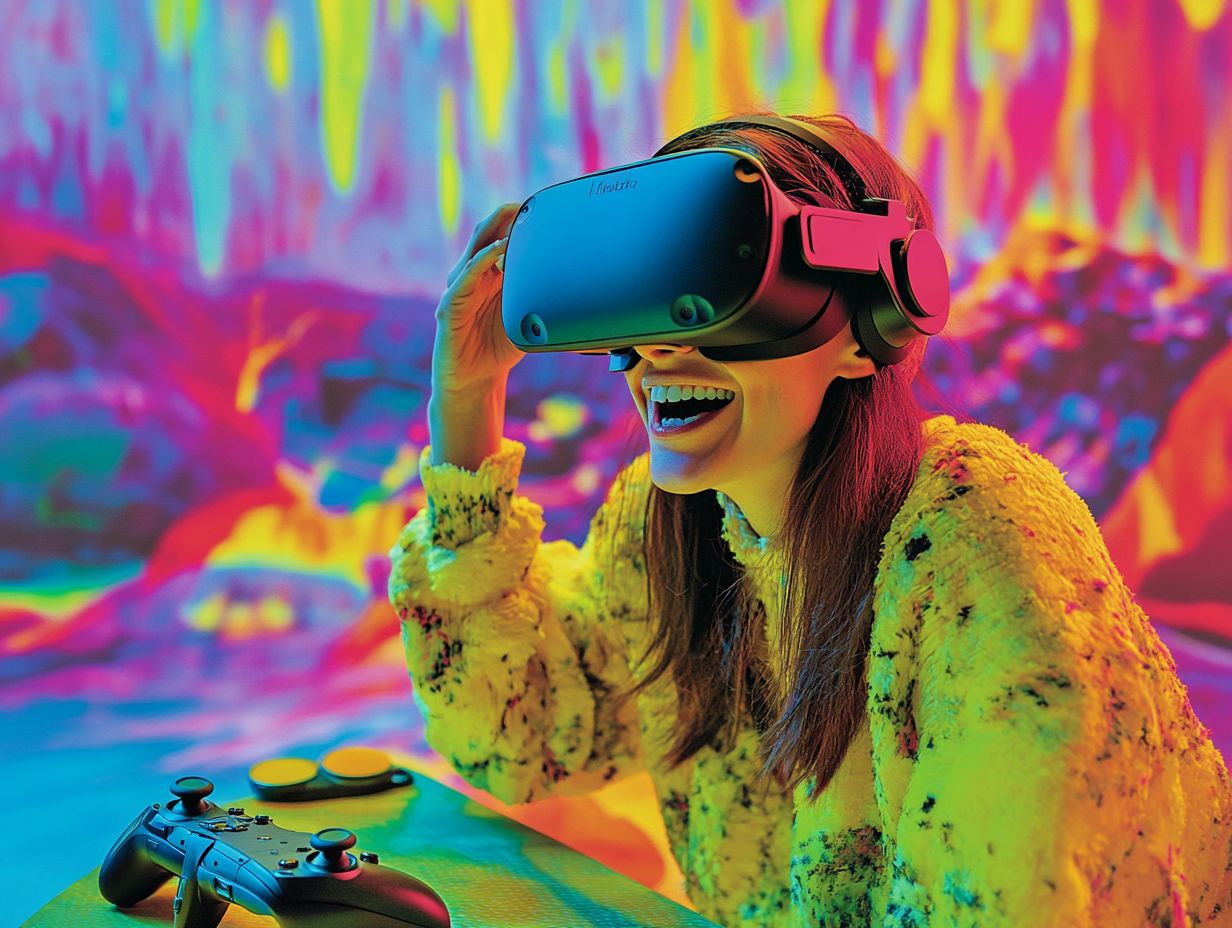
VR technology is transforming both gaming and film, offering interactive experiences that elevate storytelling and create immersive worlds like never before.
With advanced motion tracking and haptic feedback (providing tactile responses), you can physically engage in virtual environments. This makes every gaming session more realistic and emotionally resonant.
This shift towards immersive storytelling is reshaping traditional narratives in both mediums, unveiling exciting opportunities for creativity and engagement.
As you dive into titles like ‘Half-Life: Alyx’ and ‘Beat Saber,’ you realize that you are not merely a passive spectator. Instead, you actively shape your experiences through your choices and interactions.
These remarkable technological advancements result from developers boldly pushing the limits of VR simulations. They ensure that every movement and action you take carries weight and significance.
In film, projects like ‘The Line’ invite you to step inside the narrative, allowing you to navigate stories in ways that fully engage your senses.
The seamless blend of gameplay and cinematics creates new pathways for emotional connection, pulling you deeper into tales that encourage you to feel, explore, and connect in ways you ve never imagined.
Expanding into Other Forms of Entertainment
Beyond gaming and film, you will find VR making strides into other realms of entertainment, like virtual museum tours and interactive educational experiences. These not only foster social connections but also enhance learning.
These applications harness VR technology to create engaging environments where you can connect with art and history in truly transformative ways. With the power of 360-degree visuals and spatial audio, these platforms are redefining how you interact with cultural and educational content.
When you don those headsets, you can explore the ancient ruins of Rome or meander through the halls of the Louvre, feeling as though you are genuinely present in these iconic spaces.
This immersive experience will not just capture your attention; you will feel like part of the action!
Institutions are also tapping into VR for educational simulations that create compelling user experiences. Imagine conducting virtual chemistry experiments or diving deep into marine ecosystems, all from the comfort of your classroom.
These advancements underscore how VR isn’t merely reshaping entertainment; it is enriching social interactions and expanding learning opportunities across a variety of sectors.
Challenges and Limitations of VR in Entertainment
Despite the thrilling advancements in VR technology, you will encounter a range of challenges and limitations within the entertainment industry that can impede widespread adoption and effective implementation of VR applications.
Crafting high-quality VR content often requires a level of technical expertise that not everyone possesses. Financial hurdles can restrict your access to cutting-edge equipment like VR headsets and motion tracking technology.
It is urgent to address user comfort and safety to keep consumers engaged in immersive entertainment.
Technical and Financial Obstacles
Technical and financial obstacles present substantial challenges in developing and distributing VR content, ultimately limiting its accessibility and growth within the entertainment industry.
The demand for specialized skills such as 3D modeling (creating three-dimensional representations of objects), programming, and animation has reached unprecedented levels. Yet the talent pool remains frustratingly scarce. This creates a bottleneck for studios striving to produce high-quality, immersive experiences.
The steep costs of VR headsets can deter both developers and consumers from fully embracing this groundbreaking technology.
These financial barriers impact not only the initial investment required for development but also stifle the creation of diverse and engaging content that could attract a wider audience. This, in turn, perpetuates a cycle that restricts growth and innovation in the ever-evolving VR landscape.
Addressing User Comfort and Safety
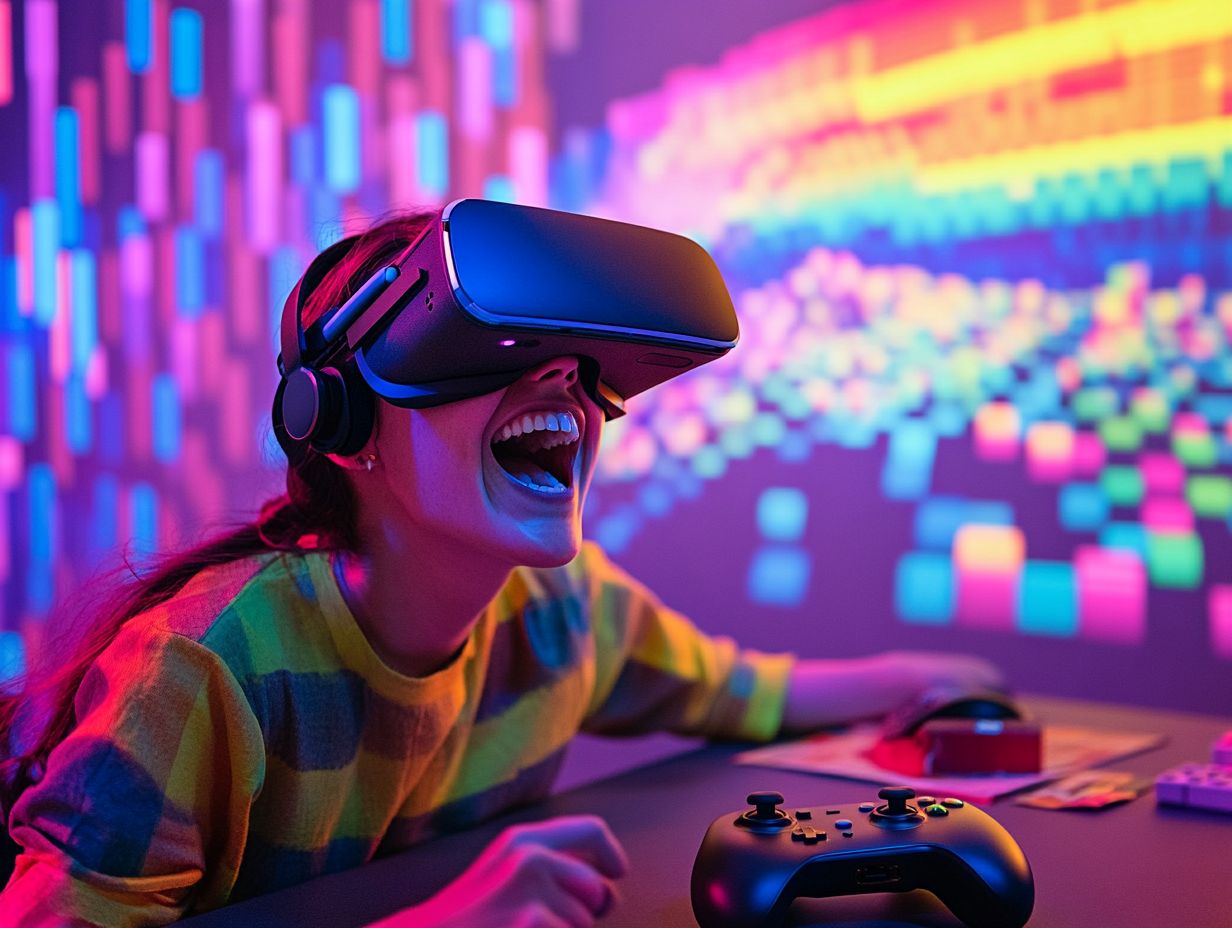
Addressing user comfort and safety is essential for the successful adoption of VR experiences; discomfort can easily drive users away from the experience.
To enhance comfort levels, consider integrating advanced motion capture technology and responsive haptic feedback systems. These innovations boost immersive experiences and help alleviate disorientation.
For instance, ensuring precise tracking of user movements creates a more intuitive environment, making interactions smooth. Implementing design strategies such as adjustable settings and user-controlled experiences allows for a personalized touch.
By prioritizing these aspects, you can craft VR experiences that are not only exhilarating but also suitable for extended use, keeping users engaged and thoroughly satisfied.
Future Possibilities and Predictions for VR in Entertainment
The future of VR in entertainment presents a landscape brimming with possibilities, as technological advancements promise to elevate immersive experiences and transform social interactions within virtual environments. For insights on what is the future of VR in gaming?, the potential is truly exciting.
Developers are creating more sophisticated VR content, allowing for richer storytelling and enhanced user agency, paving the way for personalized and emotionally resonant experiences.
Cross-reality experiences blur the boundaries between the physical and virtual realms, fundamentally changing how you perceive and engage with entertainment.
Potential for Immersive Experiences
The potential for immersive experiences in VR is truly remarkable, as ongoing innovations seek to deepen user engagement in entertainment.
By harnessing advanced technologies like haptic feedback and spatial audio, you can forge profound connections with the narratives you explore. This technology enables a more intricate understanding of characters emotions and contexts, transforming the experience from passive viewing into active participation.
Imagine being transported into various environments through VR simulations, allowing you to experience poignant moments firsthand. These experiences do more than just captivate; they prompt introspection and effectively drive home the story’s message.
The integration of interactive elements further enhances the narrative flow, crafting a multilayered journey that resonates with you on an emotional level.
Influence on Social Interactions and Media Consumption
VR is revolutionizing how you interact socially and consume media, opening fresh avenues for audience engagement and community-building in virtual spaces.
As these immersive platforms advance, they elevate the overall experience of consuming content. You find yourself in shared virtual environments where activities like watching a movie or attending a concert transform into collaborative experiences that effortlessly bridge geographical divides.
This shift signifies a profound transformation in how you interact with others and media itself, creating opportunities for deeper connections and unforgettable experiences.
Whether it s a virtual reality game that fosters teamwork or a VR cinema experience that sparks discussions among viewers, the focus on community and interactivity distinctly reshapes the modern media landscape.
Frequently Asked Questions
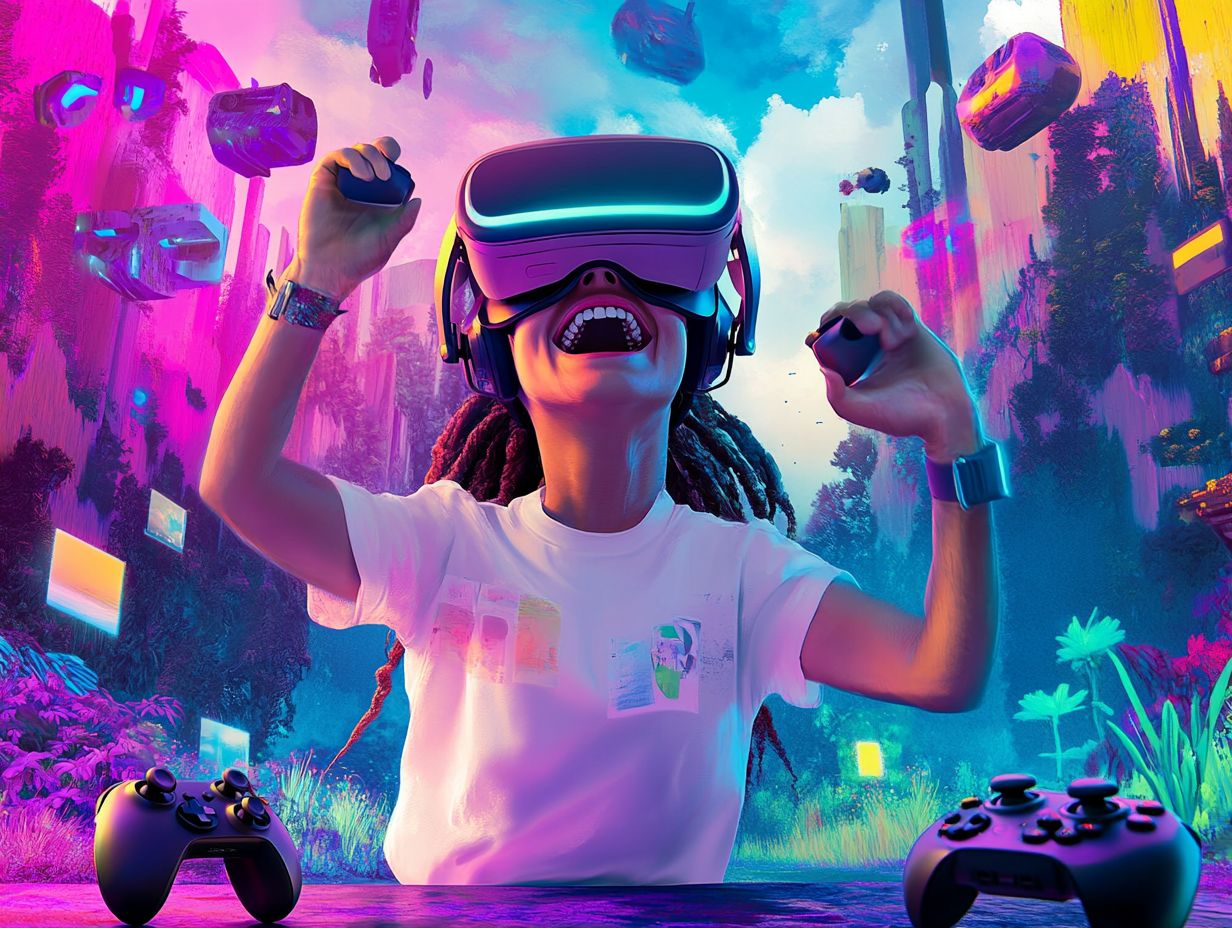
What is VR and how is it shaping the future of entertainment?
VR, or virtual reality, is a technology that allows users to feel as if they are in a three-dimensional space created by a computer. It is shaping the future of entertainment by providing immersive and interactive experiences that go beyond traditional forms of entertainment.
How is VR changing the way we consume entertainment?
VR changes entertainment by immersing you in content, making you part of the story. It allows users to become fully engaged with the material and interact with it in ways that were previously not possible.
How is VR Changing Entertainment Today?
Virtual Reality (VR) is transforming gaming, films, and live events. It creates an engaging experience where players and audiences feel part of the action.
How Does VR Enhance Entertainment?
VR enhances entertainment by making experiences more engaging and lifelike. Creators can tell stories in ways that captivate audiences.
What Does the Future Hold for VR in Entertainment?
The future of VR in entertainment is exciting! It can change how we enjoy games, movies, and live events, opening up new storytelling opportunities. To learn more, check out the future of VR: trends to watch in 2025.
What Challenges Does VR Face in Entertainment?
VR faces challenges like high costs and technical limitations. However, as technology advances, these barriers will likely fade.

